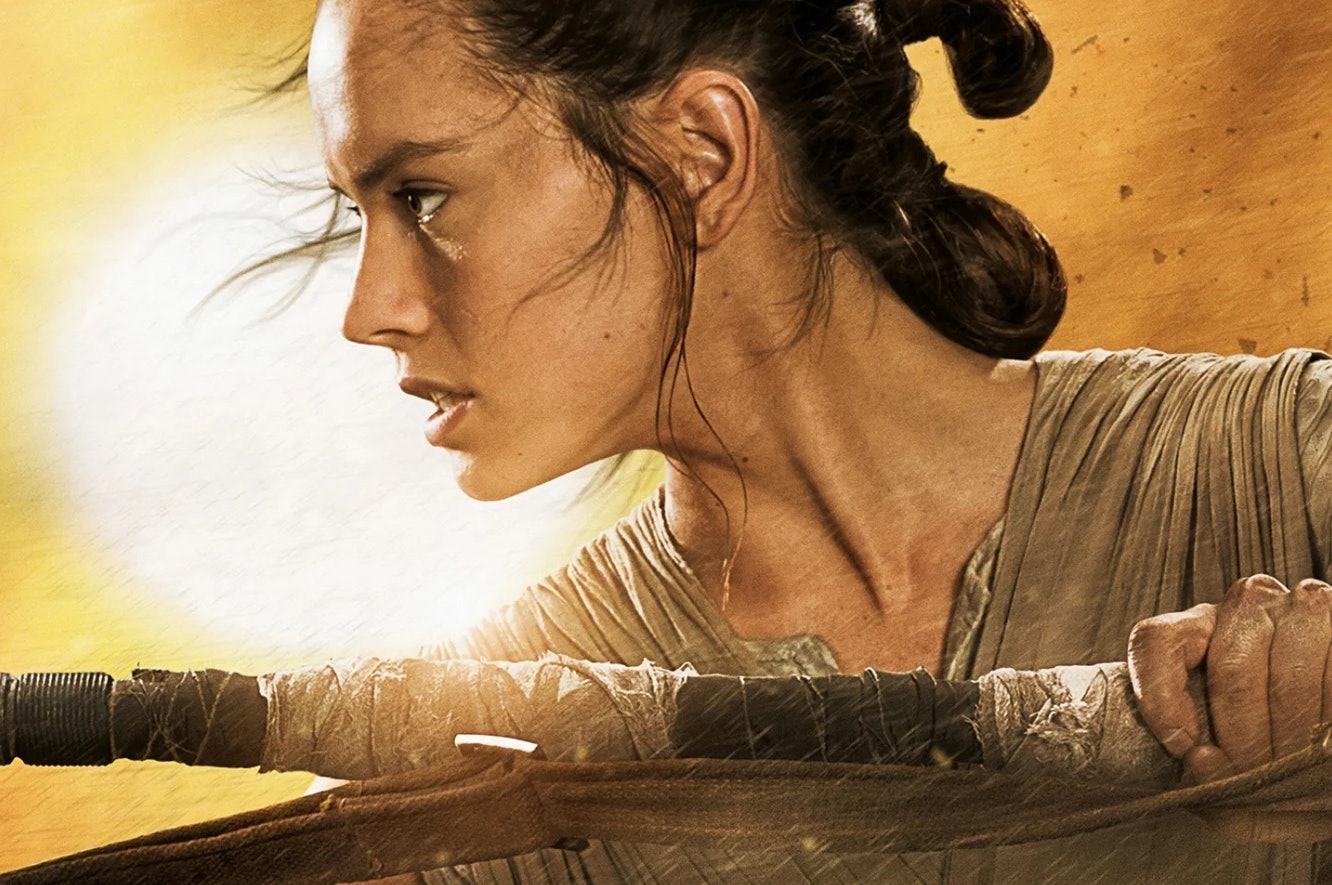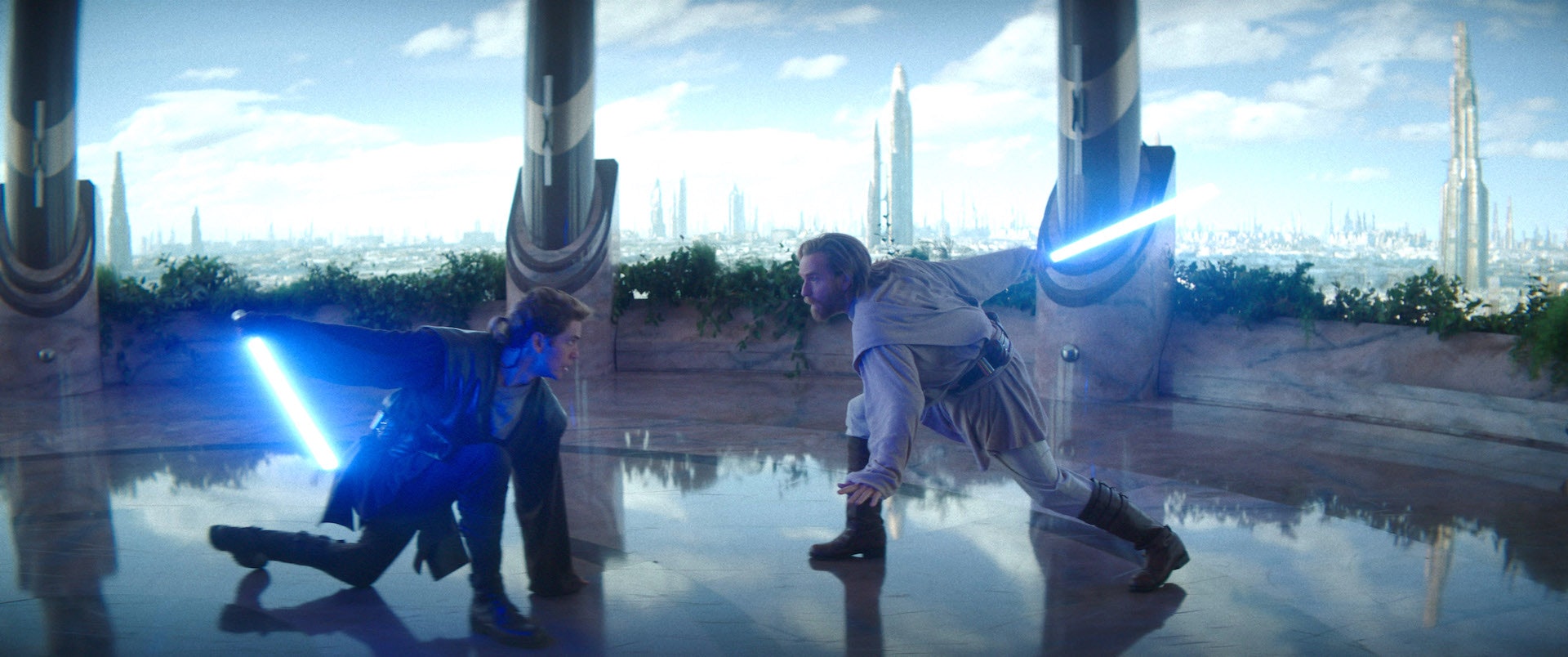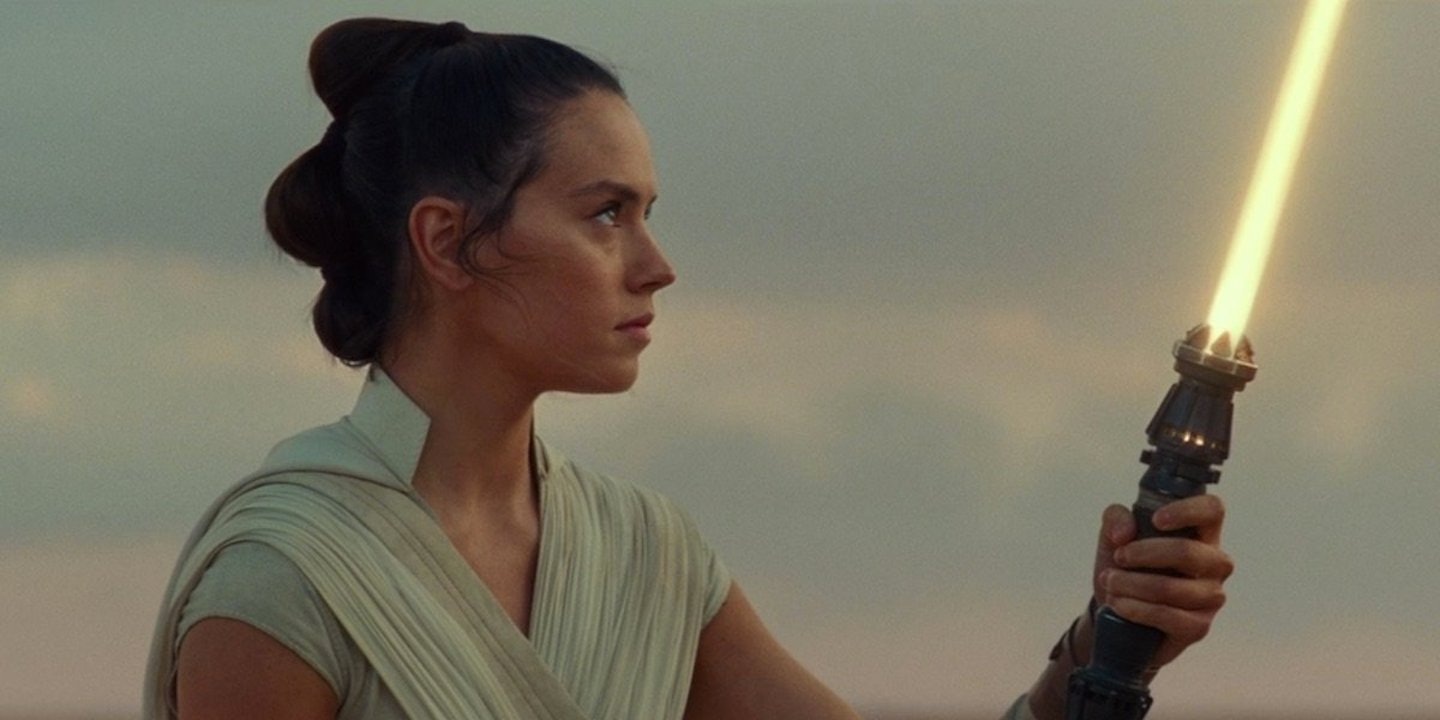
Since 2019 and the end of the Skywalker saga with Episode IX — The Rise of Skywalker, the future of cinematic Star Wars has been blurry. As of October 2022, a Damon Lindelof-penned Star Wars film will be the next theatrical release from a galaxy far, far away. Here’s why that film can’t ignore The Rise of Skywalker, and why it's imperative the timeline moves forward.
Although it’s been three years since a Star Wars movie was in theaters, there’s been quite a bit of new Star Wars in the meantime. With The Mandalorian, The Book of Boba Fett, Andor, and Obi-Wan Kenobi, Lucasfilm has delivered fans more hours of live-action Star Wars material than ever before. And with Ahsoka and The Acolyte on the horizon, it’s clear that Star Wars can thrive on TV. Other than Star Trek, Star Wars is the only space-based franchise that seems capable of expanding to several different series simultaneously. But unlike Star Trek, every single Star Wars series is a prequel.

Prequels aren’t inherently bad. In fact, the Star Wars franchise was instrumental in normalizing prequels for mainstream sci-fi and fantasy. But Star Wars has become reliant on them, and if the movie side of the Force is going to have a meaningful impact the franchise has to move forward. Having a prequel setting for a TV series is one thing, but making another series of prequel films would be a doomed endeavor.
No matter what you thought of The Rise of Skywalker, the next Star Wars feature film is stuck with its continuity. Instead of retreating from its status-quo-altering events to go deeper and deeper into the mythos of the Rebellion and the Jedi, a new Star Wars film needs to figure out what the future of this galaxy might look like.
Back in 2015, one of the most exciting elements of The Force Awakens was the fact that it was a sequel, one with the potential to give us a novel look at the galaxy. But even though the sequel films were technically set after the classic films, The Rise of Skywalker connected all the players. The Rebellion was now the Resistance. The Empire was now the First Order, and then the Final Order, which thanks to Palpatine’s return was basically just the Empire again. As a trilogy, the sequels felt very prequel-ish.
A true sequel to The Rise of Skywalker must actually change the dynamic of the Star Wars universe. In The Force Awakens, we learned that the Jedi still hadn’t returned, and thus the balance of the Force was out of whack. Presumably, Rey’s defeat of the Sith in The Rise of Skywalker changed a great deal about that balance, so why not show it? A radical makeover of the galaxy could be exciting. Even if fans don’t love how Rey tipped the scales, the result of her triumph is ultimately good for a hypothetical sequel film.

Ideally, Rey Skywalker’s story could continue, and it would be even better if Poe, Finn, and Rose could join her. The sequel characters were trapped in retro-plot structures and differing visions from various writers and directors, but they’re still largely beloved by the Star Wars community. A possible sequel to The Rise of Skywalker wouldn’t need to rely on any nostalgia for the classic films, but simply build upon the goodwill most fans still have for its stars.
There’s nothing wrong with telling a Star Wars story set in the future of Star Wars. The characters of the sequel trilogy aren’t broken or bad. The galaxy is a blank slate. All that’s required of Damon Lindelof (or someone else) is to write a story that gives these people something interesting to do. Yoda told us, “always in motion, the future is,” but for once it would be nice to see what that future actually looks like.
The next Star Wars movie is slated for December 2025.







